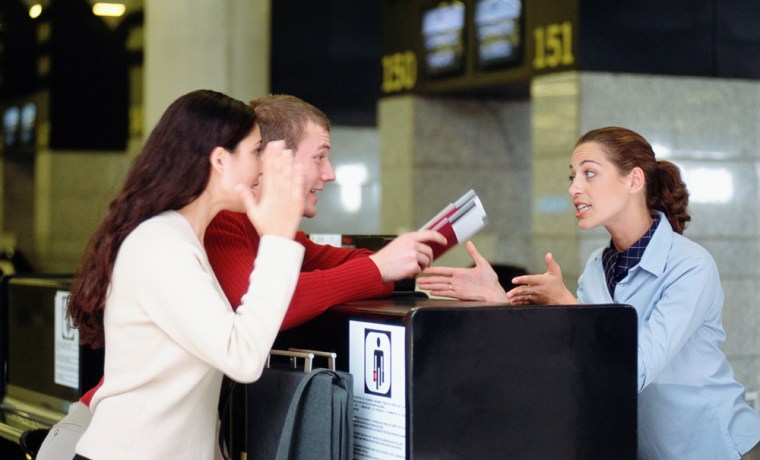Once you book a plane ticket and hotel room, it's natural to think your vacation costs are all but covered.
Yet a hodgepodge of new and unexpected fees when you're on the road means your trip can end up costing far more than expected.
With airlines, for example, fees can now outweigh the price of a ticket if you're not careful. And the attractive rates for hotels and rental cars on travel Web sites probably don't reflect the surcharges and extras that will be added later.
Knowing about any hidden costs will help you stay on budget, and perhaps even dodge some fees. Here's what to watch for:
PLANE TICKETS
Testing the limits of fee outrage, the low-cost carrier Spirit Airlines last week said it will charge as much as $45 each way for a carry-on bag. The practice isn't catching on, but it further shows complimentary services on airlines are quickly becoming industry relics.
To start, many carriers now charge around $25 for the first checked bag, and $30 for a second bag. Be sure you know the size and weight requirements too, or you may end up paying an additional $50 or so per bag. So if you checked two overweight bags, it could cost $155.
Once you're in the air, typically all that's free are drinks such as soda, juice and coffee. Complimentary meals have all but vanished on domestic flights, and many airlines now charge for snacks as well. On United and US Airways, snacks range from $3 to $7, according to FareCompare.com.
Alcohol, headsets and Internet access generally come with price tags too. On JetBlue, it's $7 for a blanket and pillow.
The good news is that most these fees can be avoided with some careful planning. And you may be able to get some fees waived or reduced if you have a frequent flier account or a rewards credit card with the airline.
RENTAL CARS
You jump at a low daily rate for a rental car, only to be handed a far higher bill at the counter. The reason is that advertised rates don't include taxes, fees, insurance and other extras.
Let's take a one-day rental from Budget Rent A Car at the Phoenix airport. The daily rate for a standard car in May is $28.99. After taxes and fees, however, the cost is $48.15. And that's before insurance or any options are tacked on.
If you have toddlers, for example, it's $12 to rent a child safety seat. GPS costs $13.95 a day, and electronic toll collection is $1.50 a day.
Insurance can be another $50 or so a day, although you may not need to pay this. You may already be covered by your car or homeowners insurance, and some credit card policies provide rental car coverage as well.
Most people know they'll be gouged for failing to fill up the gas tank before returning the car. But late fees can also push up costs. If you're a couple hours late, for instance, you may be charged for another full day.
HOTELS
If you're booking a room directly with a hotel, remember that hotel occupancy taxes vary greatly around the country. In San Francisco, it's 14 percent of the room's cost. There's a tourism industry assessment of about 1 percent for hotels in some popular downtown areas.
Hotel taxes and fees are also partly why you often pay more than you expected with online travel sites. The bids you submit with the name-your-own-price option generally don't include taxes or service fees charged by the site.
So after taxes and fees, one recent $100 per night bid on Priceline.com for a four-star hotel in San Francisco came to $123.67.
Before you commit to a hotel, you might also want to call or check hotel Web sites to ask about Internet and gym fees if those services are important to you. If they're charged at a daily rate, such fees could easily tack on another $100 or more to your bill.
MONEY
Even money can come at a cost when you're on the road. For instance, chances are that you'll use an out-of-network ATM. But both your bank and the ATM owner will likely ding you for a combined average fee of $3.54, according to Bankrate.com.
If you're going abroad, check if your bank offers free currency exchanges. And remember that putting charges on your credit card may be more expensive than you recall. In the past year or so, many banks have raised their foreign transaction fees to about 3 percent of the purchase.
That means that charging $300 while abroad would result in fees of $9. It's not a huge amount, but it could add up enough to be annoying if you weren't expecting it.
